AITA for telling my dad and his wife I won’t take responsibility for my disabled stepsister’s care in the future?
Family obligations can be complicated, especially when blended families come into play. Many people struggle with balancing personal aspirations with familial responsibilities, particularly when it comes to the long-term care of a disabled family member. While some believe in unconditional support, others argue that forced obligations can be unfair and burdensome.
One teenager found himself at the center of this debate when his father and stepmother asked him to commit to caring for his severely disabled stepsister after they pass away. At just 17 years old, he was faced with a life-altering decision that he felt unprepared for. Was he wrong for saying no, or were his parents asking too much of him? Read on for the full story and the perspectives surrounding it.
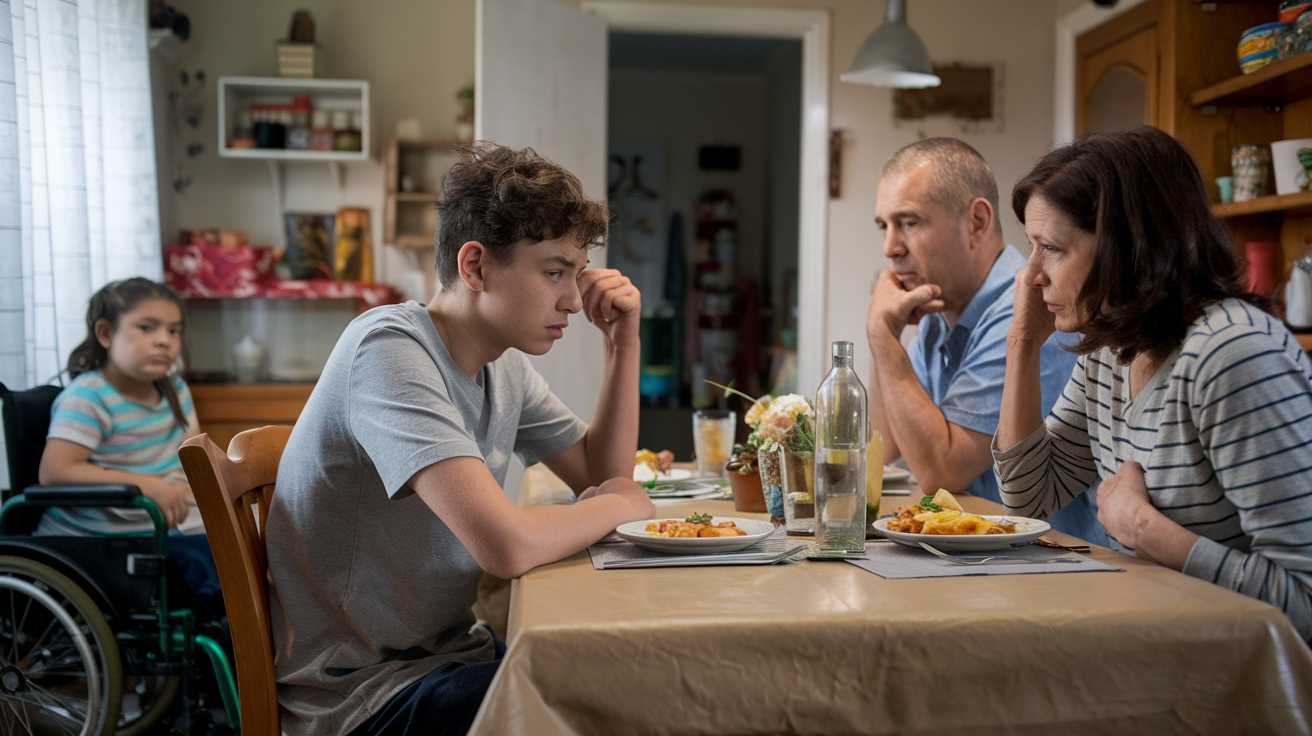
‘ AITA for telling my dad and his wife I won’t take responsibility for my disabled stepsister’s care in the future?’

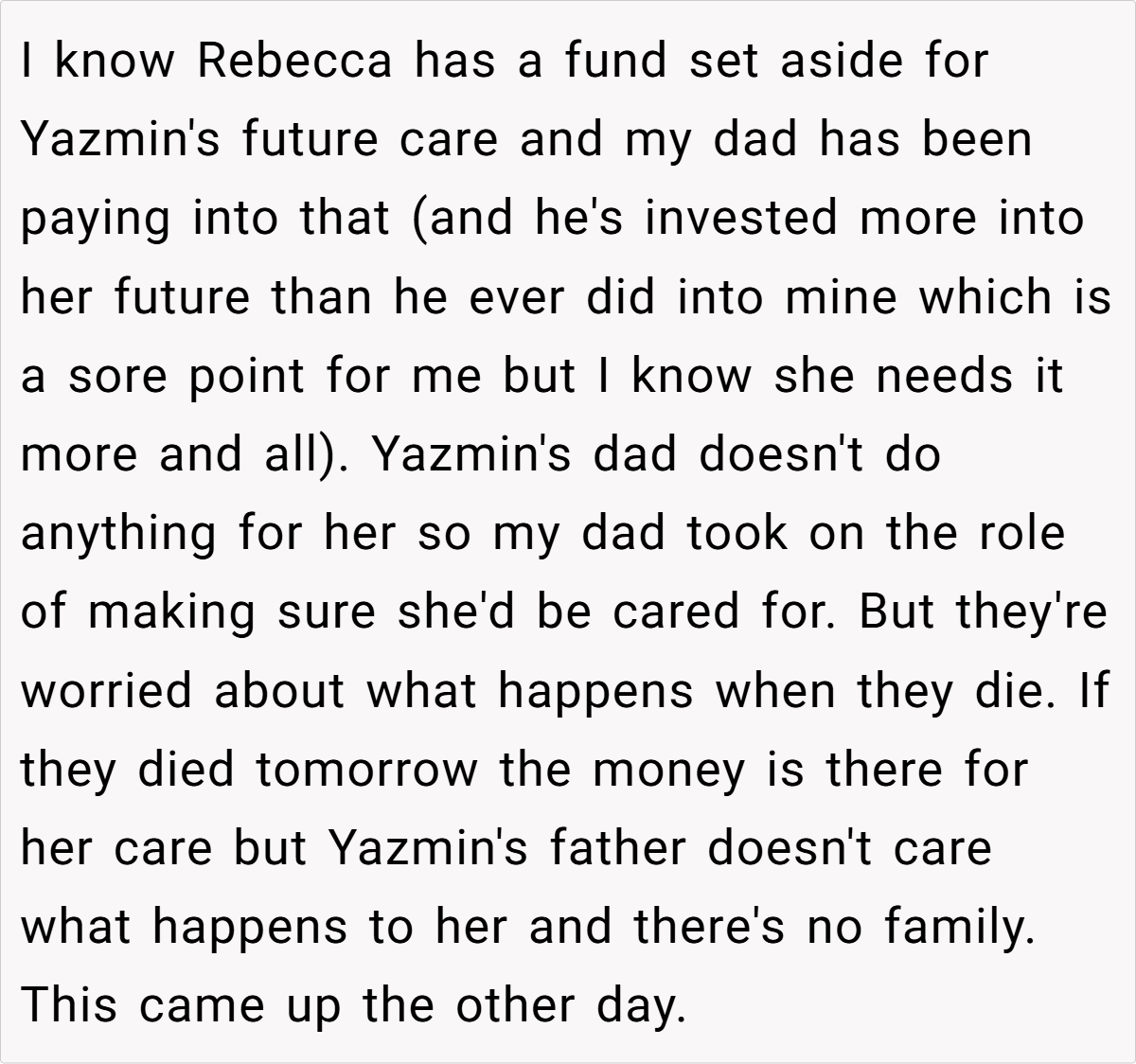
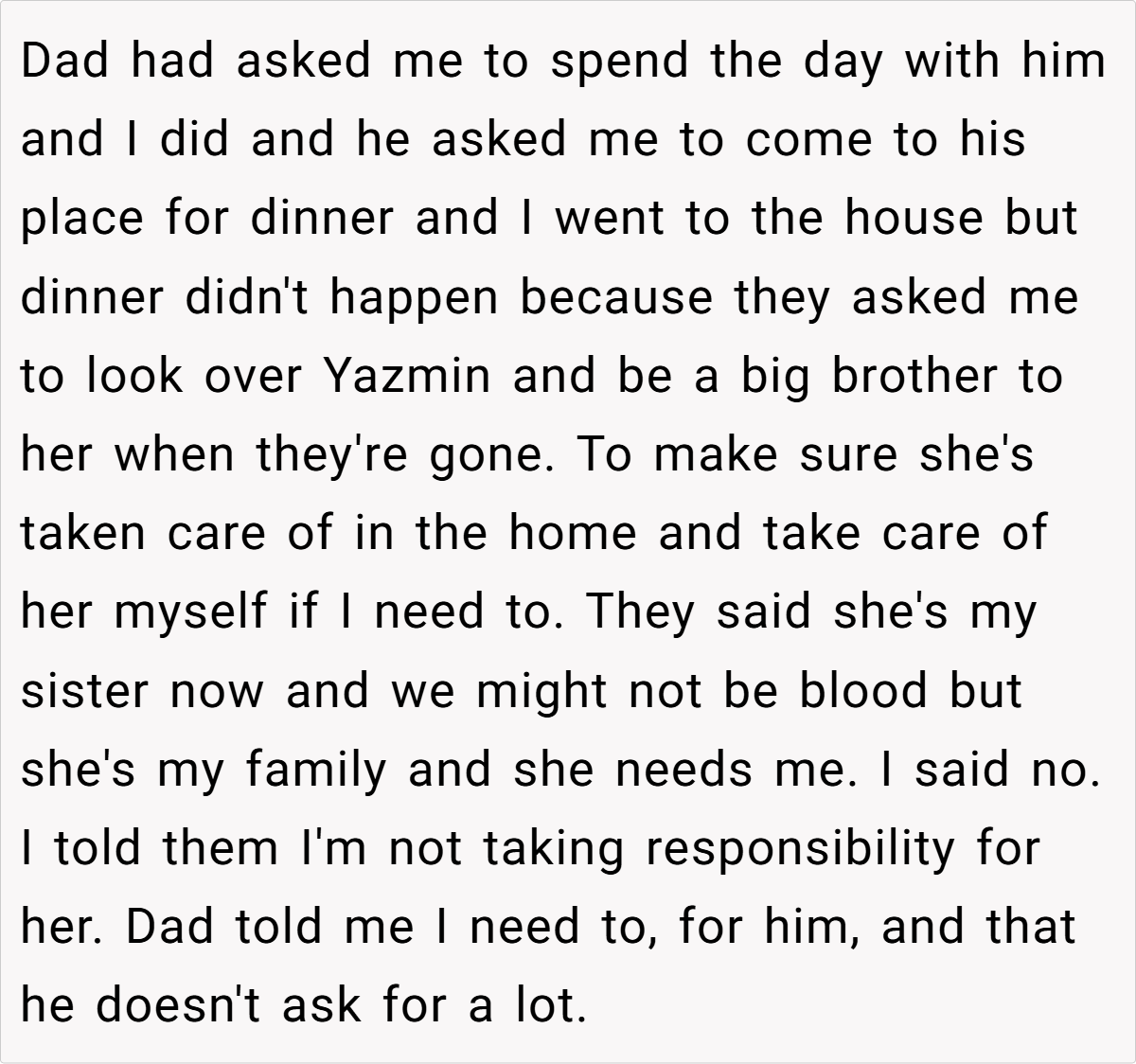

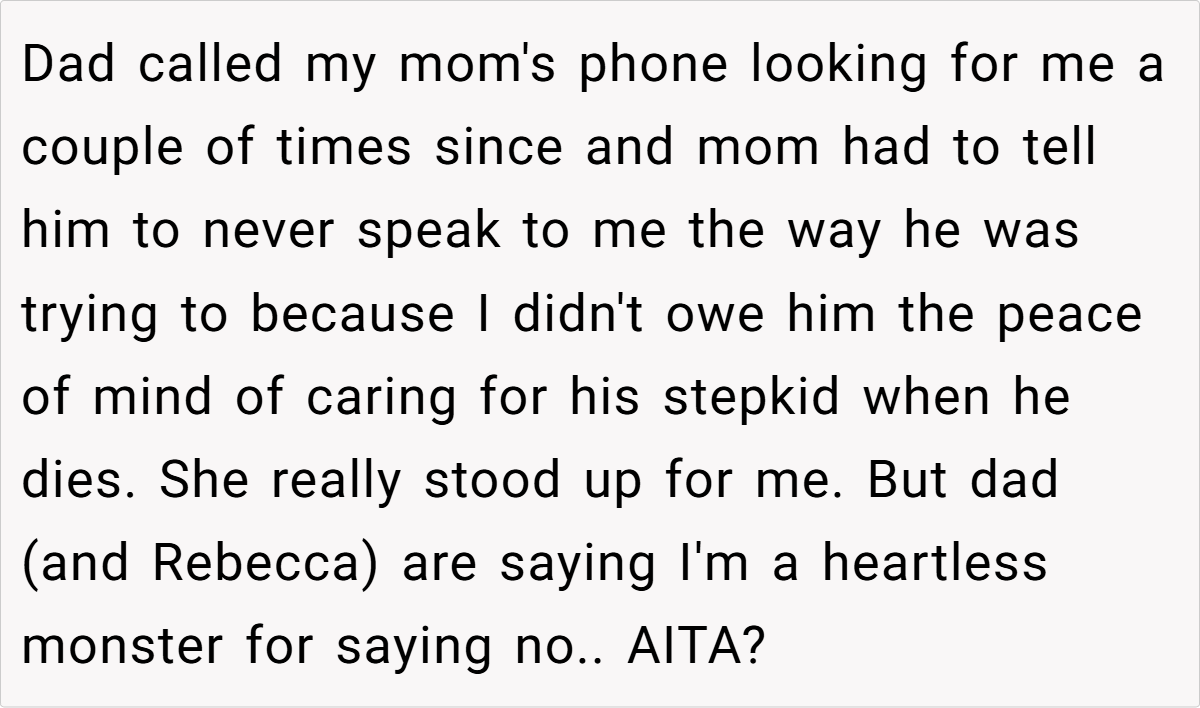
Expert Opinion
The issue of guardianship for disabled family members is a deeply personal and complex matter. According to Dr. Megan Dolbin-MacNab, a professor of human development at Virginia Tech, “family caregiving should be based on willingness and capacity rather than obligation. A forced commitment can lead to resentment and burnout, ultimately harming both the caregiver and the person receiving care.”
This sentiment is echoed by disability rights advocate Ari Ne’eman, who argues that placing the burden of care on unwilling or unprepared family members can lead to negative outcomes. Instead, he suggests that families create long-term care plans that do not rely solely on relatives. “There are professional care options that ensure disabled individuals receive appropriate support without forcing untrained family members into caretaker roles,” Ne’eman explains.
Financial planner and elder care specialist Cameron Huddleston also emphasizes the importance of preparing for the future. “Parents of disabled children should consider special needs trusts and professional guardianship arrangements to ensure their child’s long-term care. Relying on a minor or young adult to take over such a responsibility is not a sustainable plan.”
Dr. Laura Markham, a psychologist specializing in family dynamics, adds that family pressure can create lasting emotional distress. “When a young adult is forced into a role they never agreed to, it can strain family relationships and create deep emotional wounds.” Experts recommend open conversations that respect an individual’s boundaries while exploring alternative solutions for care.
Here’s what people had to say to OP:
Reddit users had strong reactions to the original poster’s dilemma. Many agreed that forcing such a responsibility on a teenager was unfair and unrealistic:

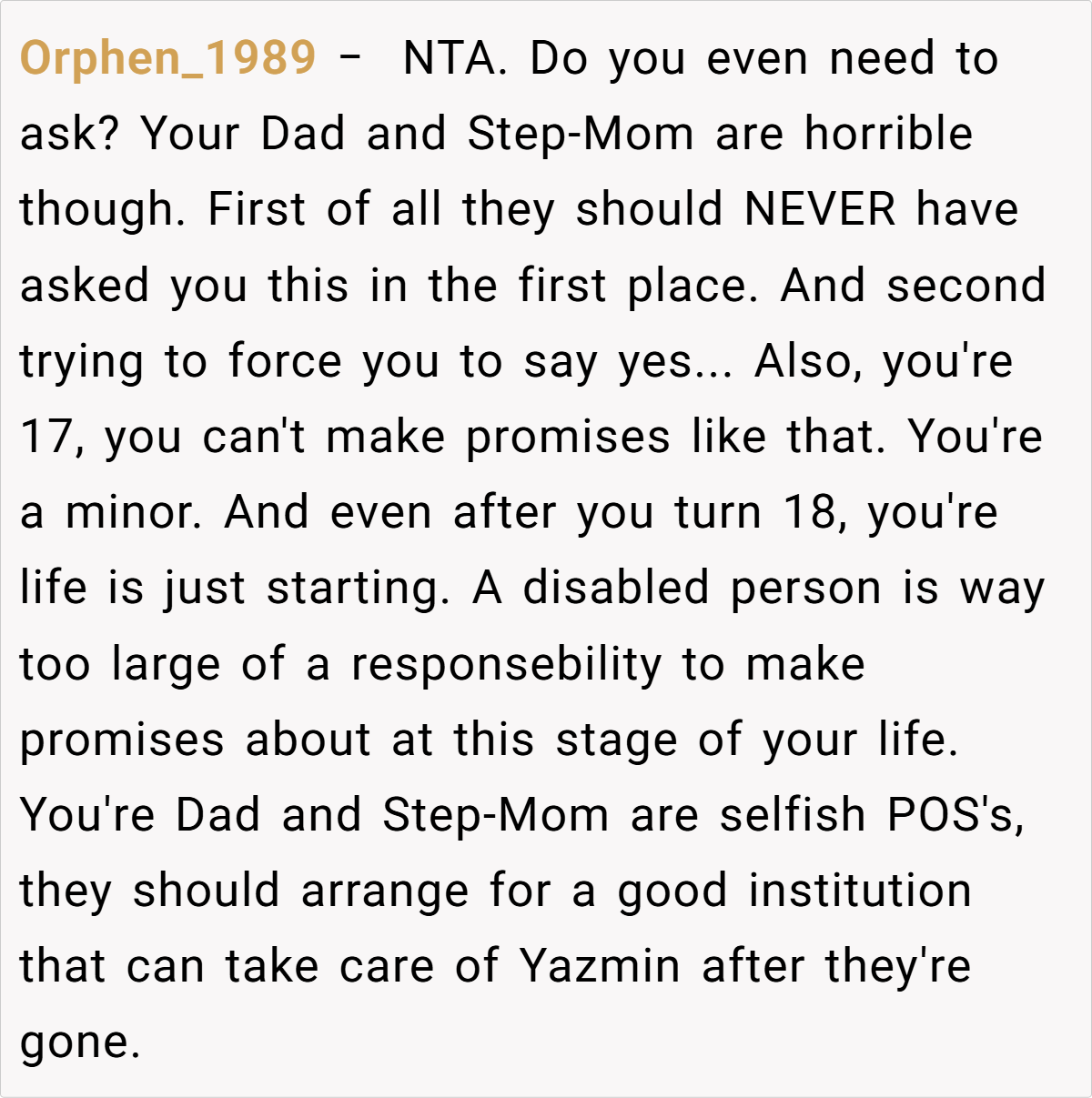
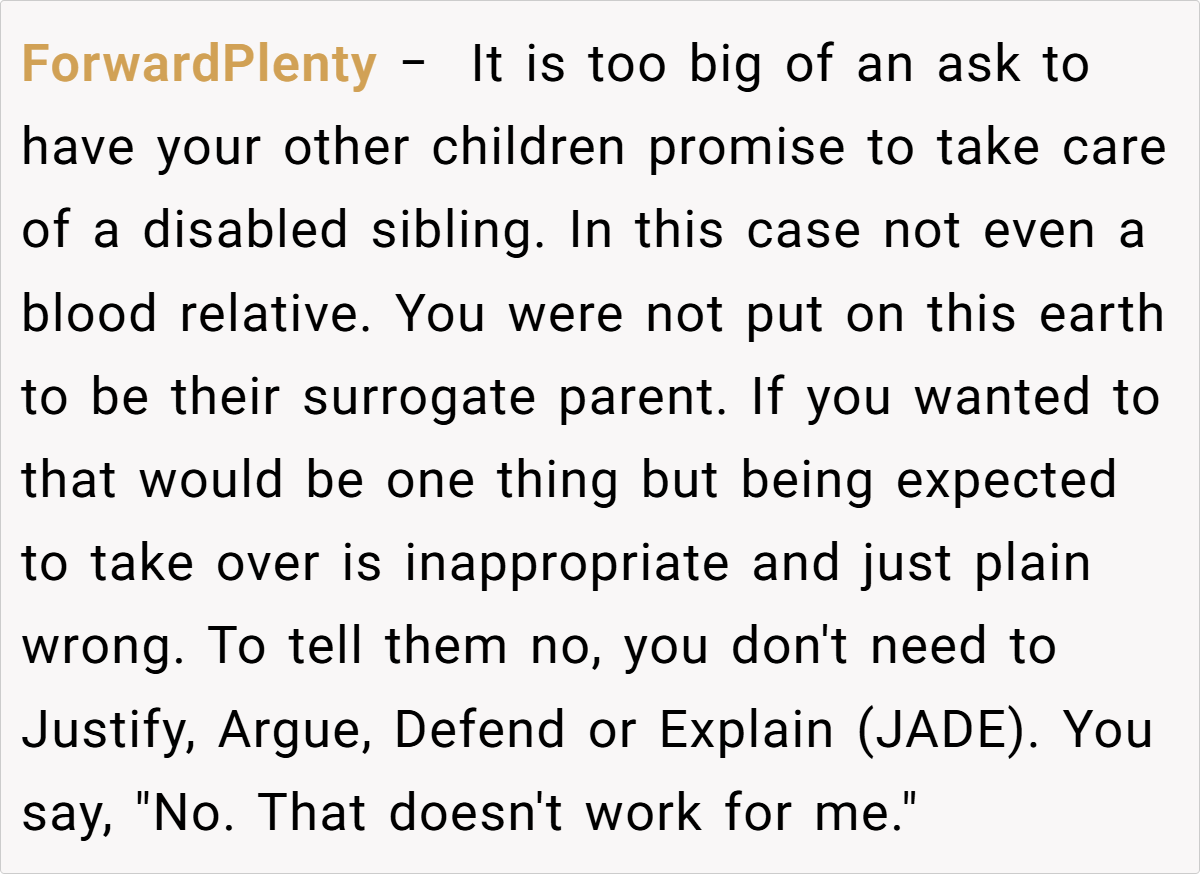
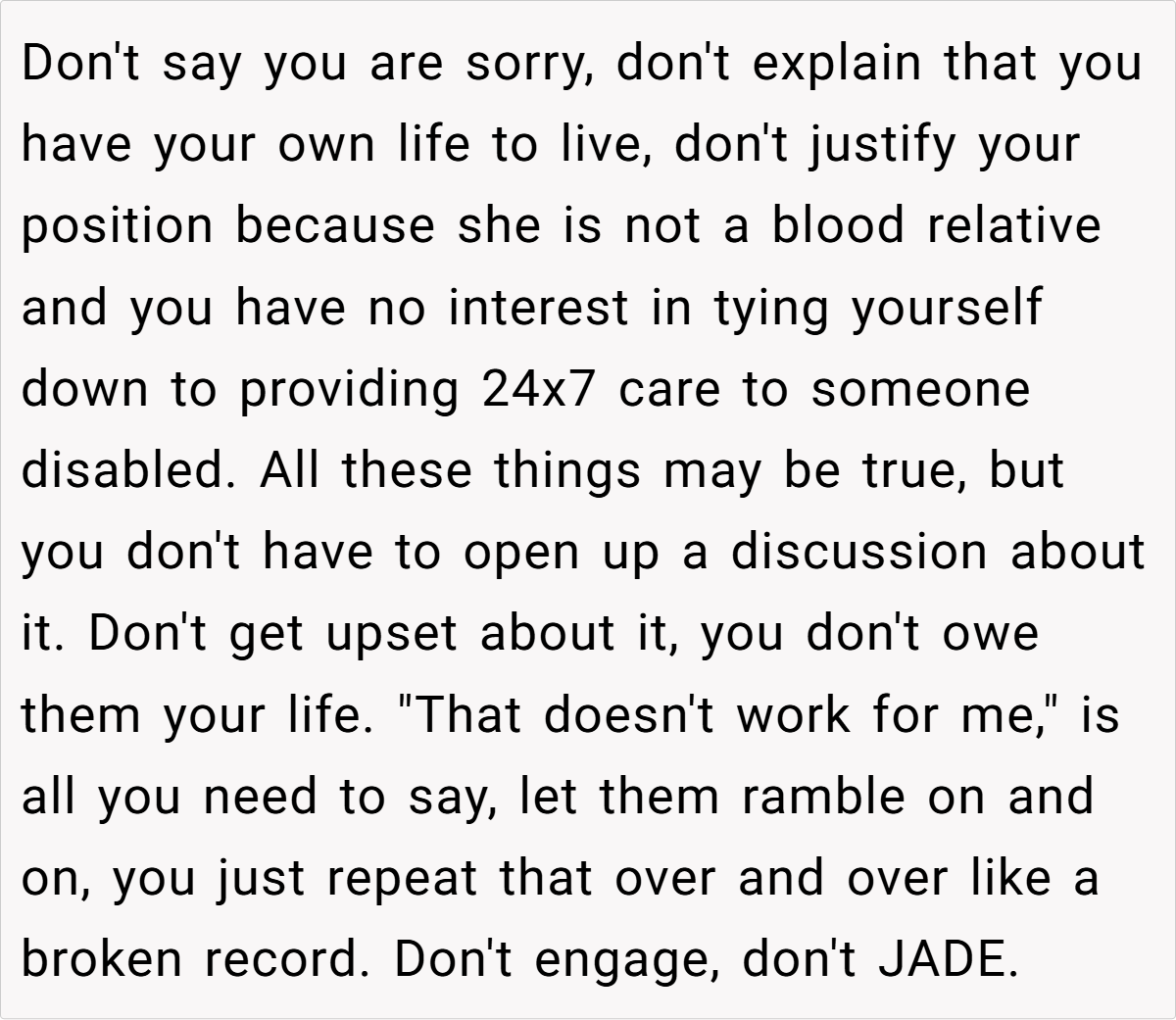
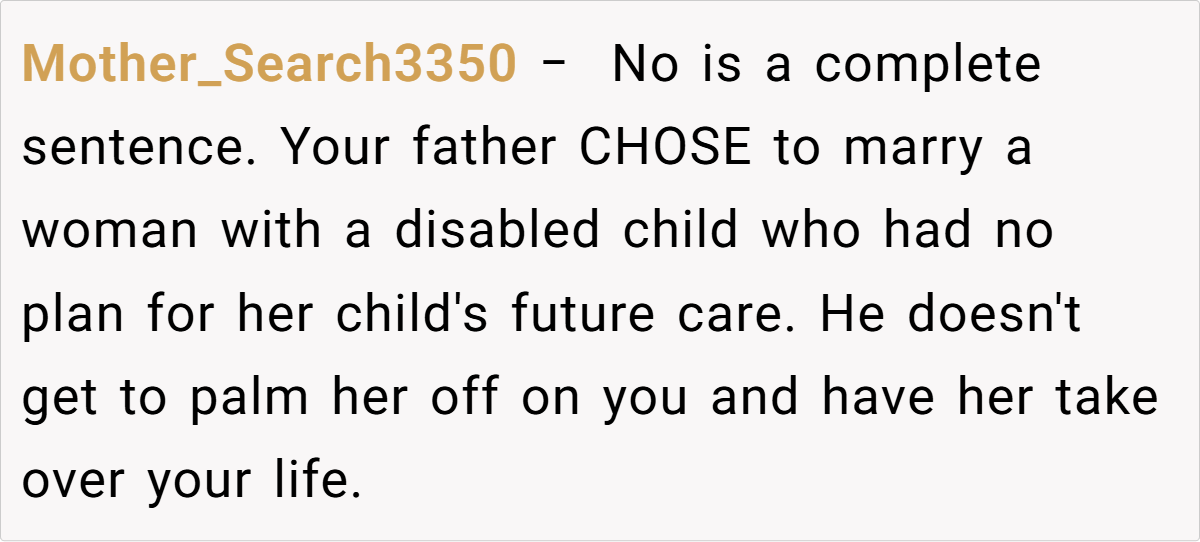
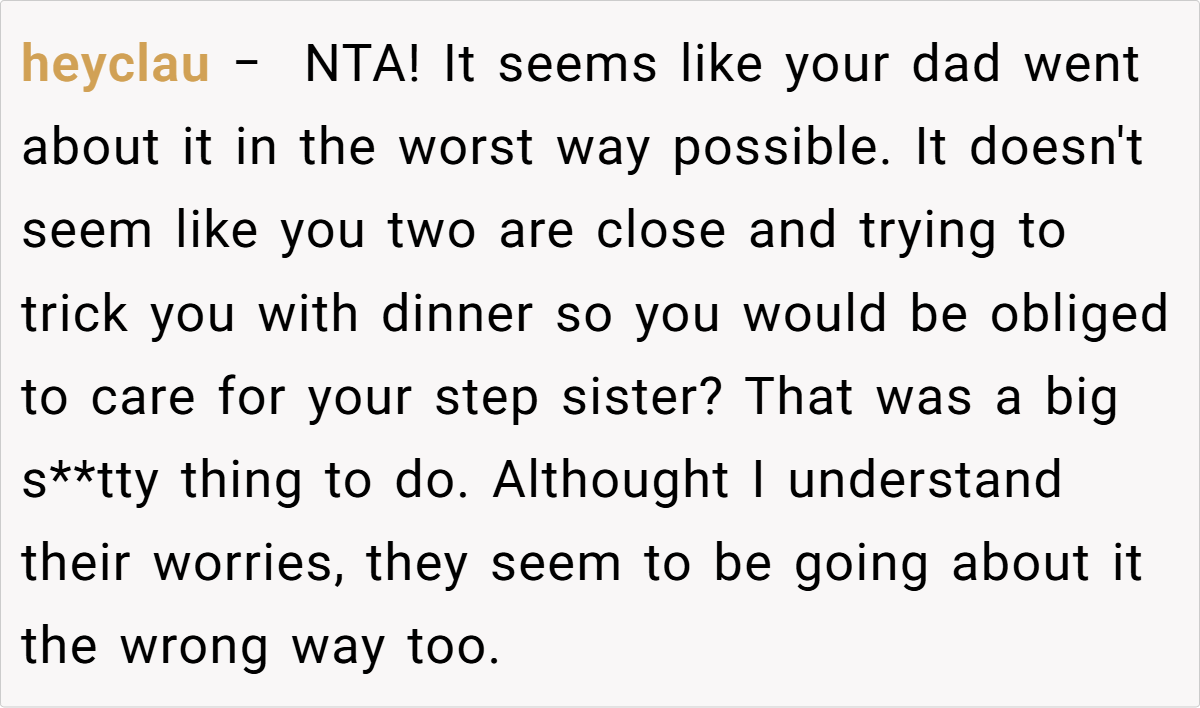
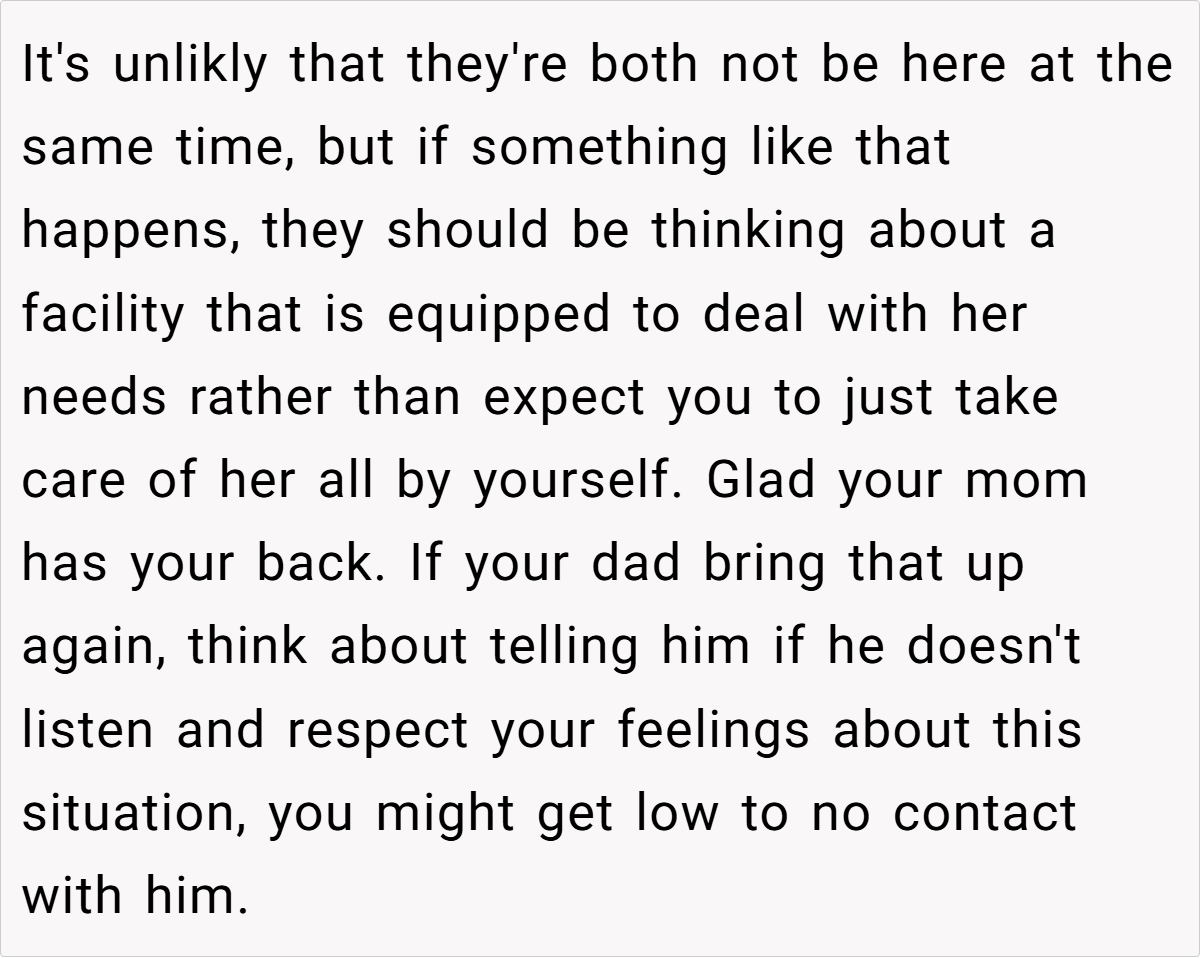
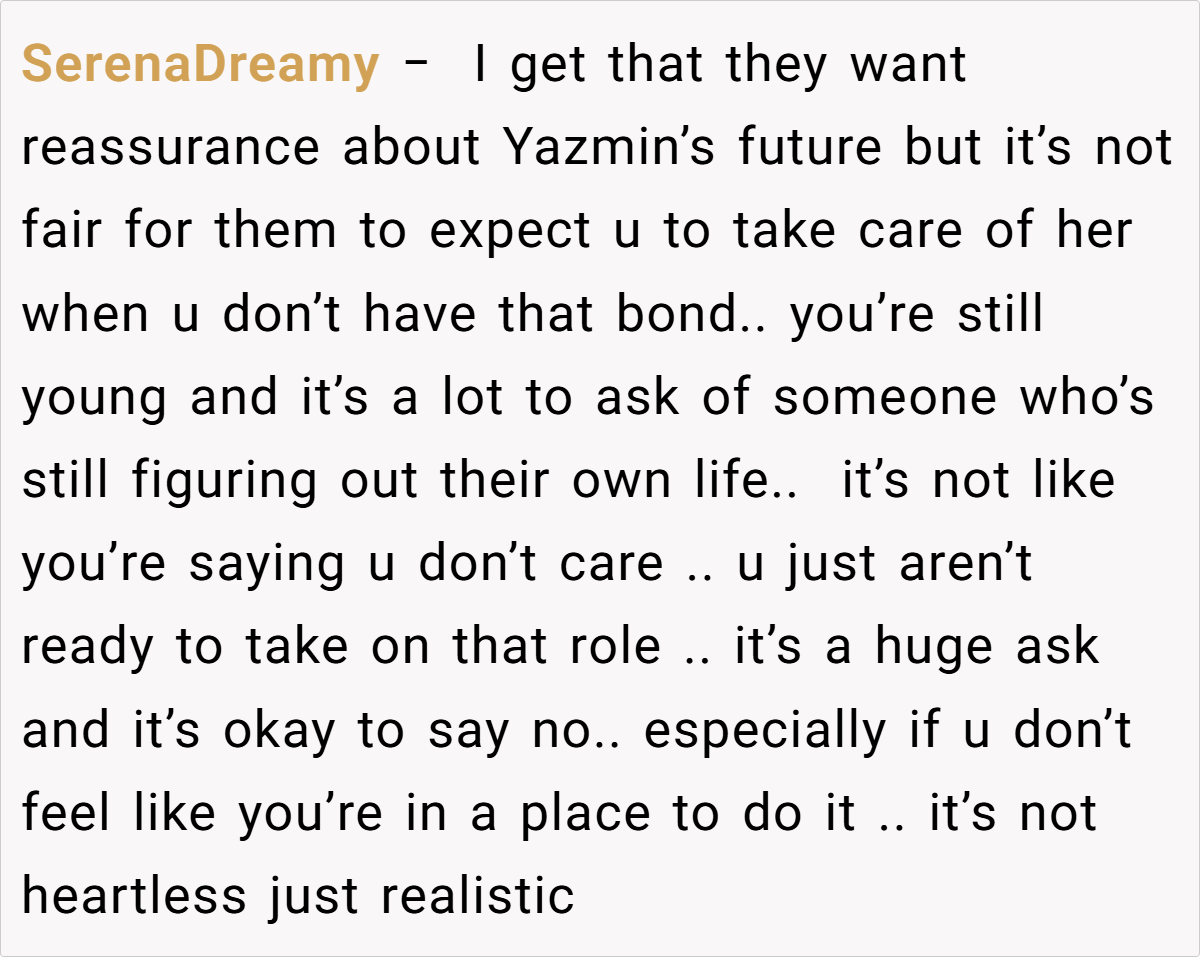

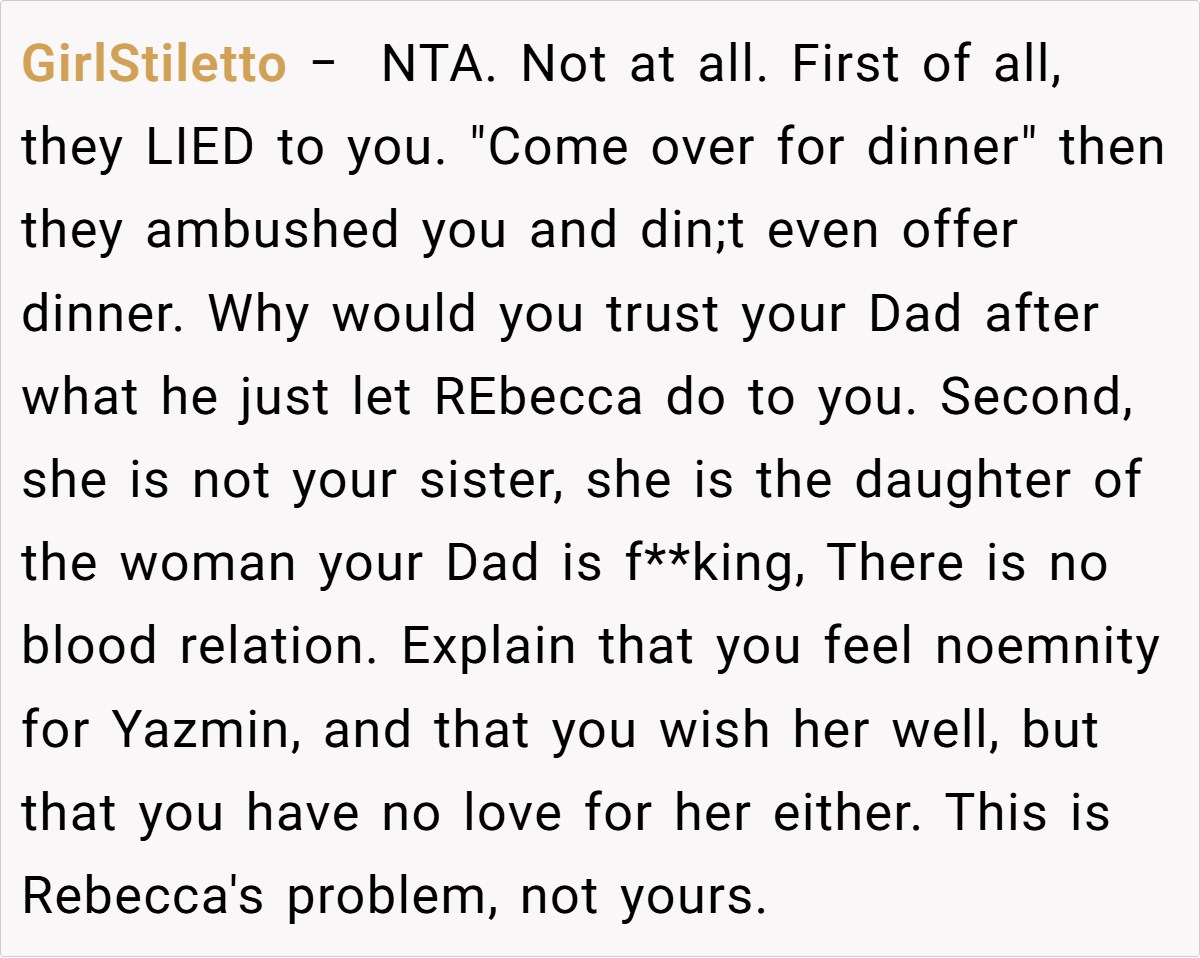
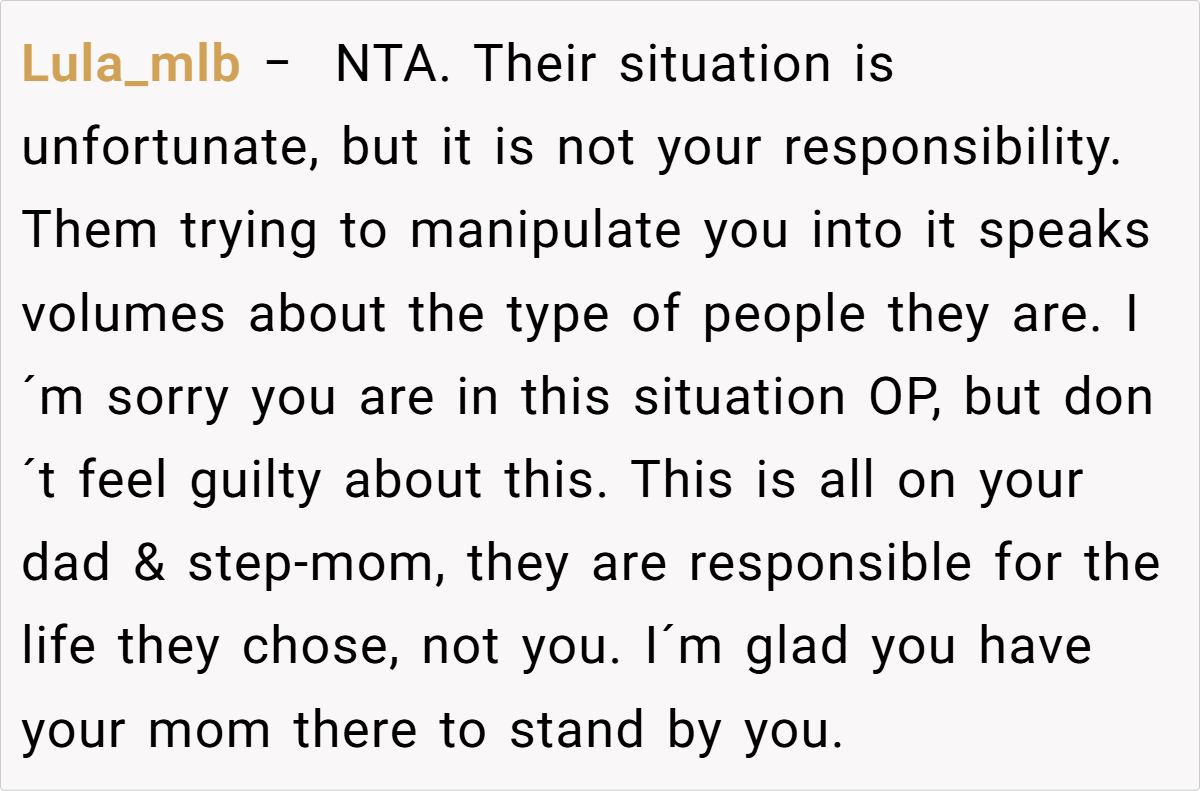

Some commenters highlighted the importance of having professional care options in place rather than expecting a sibling—especially a step-sibling—to take on full-time care responsibilities. Others criticized the father and stepmother’s approach, particularly for trying to manipulate the teenager into agreeing.
One commenter suggested, “No is a complete sentence. Your dad chose this life. You are not responsible for his decisions.” Another user shared, “This is an incredibly unfair request. Your father and stepmother need to plan better instead of expecting you to take on such a massive responsibility.”
However, some expressed empathy for the parents, acknowledging that their concerns for Yazmin’s future were understandable. “It’s heartbreaking, but they need to explore other options rather than pushing this on someone who is still figuring out their own life,” one user noted.

